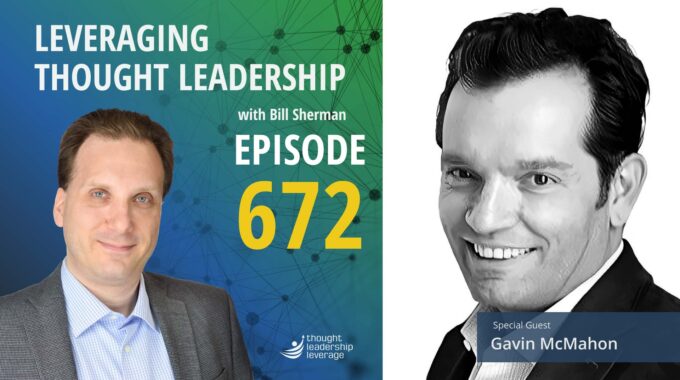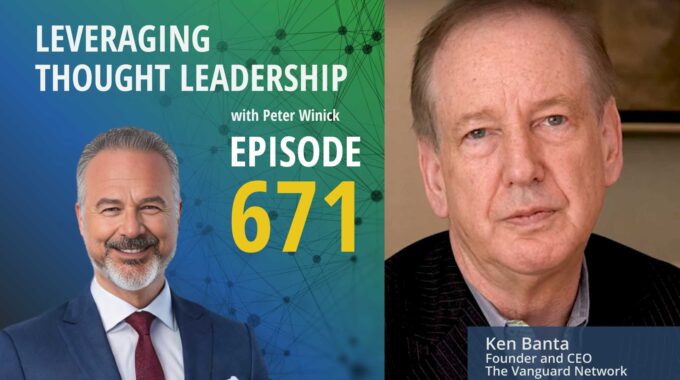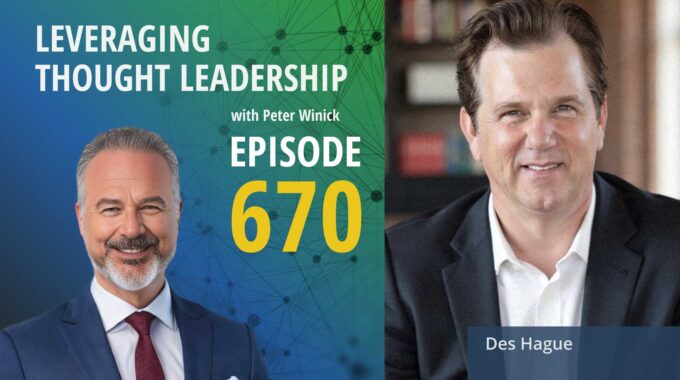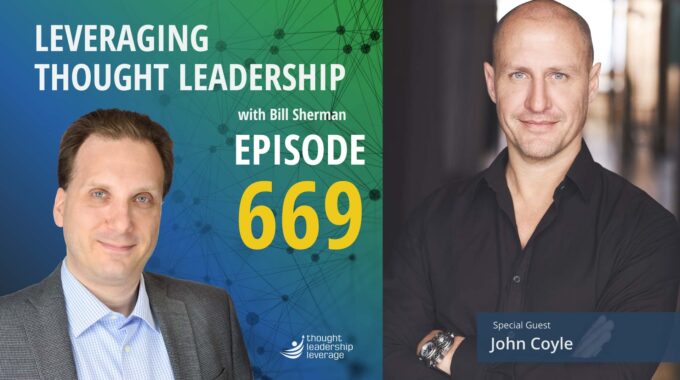How Storytelling Turns Smart Thinking into Real Influence Great ideas don’t win — great stories…
Thought Leadership for Working Mothers | Dr. Whitney Casares

Using Thought Leadership to create a more accommodating space for working mothers.
An interview with Dr. Whitney Casares about pediatricians becoming more involved in parental health, and what corporations can do to retain working mothers.
Being a working mother means juggling a lot of balls. Stress, overload, and exhaustion can make work a nightmare and in turn create an unhealthy home environment. Is it possible to simply let go and focus on the important things one at a time?
Today, we sit down with Dr. Whitney Casares, a private practice pediatrician and mother. It was the combination of these two life paths that led her to write The New Baby Blueprint: Caring for You and Your Little One and her newest book The Working Mom Blueprint: Winning at Parenting Without Losing Yourself.
Whitney discusses the significant changes to the pediatric approach that have occurred in the last decade, and how doctors are becoming more involved in the physical health of parents as well as the mental health of both parent and child.
Whitney shares her experiences as a working mother trying to manage a time consuming career while figuring out how to care for a colicky newborn. She touches on her challenges with postpartum, and later, anxiety for both mommy and daughter. She created revolutionary ways to overcome these experiences, so much so that the American Academy of Pediatrics approached her about writing books to give advice to the large population that struggles with similar issues.
We wrap up by exploring the way Whitney uses her books as credentials; allowing her access to organizations and corporations. There, she talks health, strategy, and awareness about the working mothers’ needs, and how businesses can make simple changes that will save them time and money – and improve their working mothers’ lives.
If you are concerned about your company’s approach to mental and physical health, this podcast is an eye-opener. Listen in, and learn about simple changes you can make to retain working mothers and help them flourish.
Three Key Takeaways:
- Thought Leadership that comes from personal experience can be incredibly powerful.
- Thought Leadership needs to help organizations be proactive about creating a happy and healthy workplace.
- Using thought leadership to make small changes that accommodate working mothers can shape both careers and organizations.
If you need a strategy to bring your thought leadership to market, Thought Leadership Leverage can assist you! Contact us for more information. In addition, we can help you implement marketing, research, and sales. Let us help you so you can devote yourself to what you do best.
Transcript:
Peter Winick And welcome, welcome, welcome, this is Peter Winick, the founder and CEO of Thought Leadership Leverage, and you’re joining us on the podcast today, which is Leveraging Thought Leadership today. My guest is Dr. Whitney Casares. She is a entrepreneur, a wife, a mother, a doctor, an author and probably lots of other things that we’ll find out about in a bit. She’s got a new book out called The Working Mom Blueprint, and she’s here with us, so let’s just dove in. How are you with me?
Whitney Casares I’m good. I’m great. It’s been a busy day, but a good day.
Peter Winick Great. So there is a typical-ish or linear path to be a doctor, right? You don’t just there have been 58 ways that people become doctors typically, right? However, the opposite is true when it comes to being an author or a thought leader, a speaker, etc. So maybe given that you’re both maybe compare and contrast the two and sort of answer the question of how did how did you end up here, not just the doctor piece, but you needed to add the author thought leader stuff on top because you just had all this time on your hands, I guess?
Whitney Casares Absolutely. Well, actually, it’s kind of interesting because I think back in the day, you know, traditionally that was true that for medicine that it was like, you have a biology degree, you go straight into medicine, you go ahead and finish your residency, then you move on. And actually, my path was slightly different. I knew that I wanted to do work in writing and in communication. And so I actually chose to be a journalism major in college and to minor in biology and to write for the school newspaper and kind of earn my credibility that way. In terms of being a writer, always love writing and then took a year off and then did become a doctor, went to traditional medical school, went through residency. And I’ve always been really interesting, interested in the dynamic between a mom and her child and a baby and her child. And I really waffled back and forth between should I be at OBE or should I be a pediatrician? And I finally landed on pediatrician because I found that I actually could really help the moms in addition to helping the babies and the kids in kind of this longitudinal public health fashion. Because I’m one of those nerds and I have a public health degree too, I just can’t help but continue to rack up degrees. And so I found over time I loved talking to these parents about health and potty training and all those things. But what I loved the absolute most was talking to parents and specifically to moms about these struggles that they were having themselves with their own well-being, with their own balance, specifically for working moms who were trying to raise their kids at the same time between kind of finding success in the workplace and at home. And Heidi? Yeah, go ahead.
Peter Winick Sort of looking for how new is that, because I remember as a kid go to the pediatrician and, you know, the moms would come in at the end and the child who’s got strep throat, the injury, you know, his weight and height or whatever. But you know, this was the old school guy with the doc’s bag. It would make house calls and you know, back in the eighteen hundreds when I was a kid. I don’t remember him ever, you know, asking about, you know, about his mental health or how she’s feeling like he was just the old sort of, you know, loving and kind but kind of crotchety old doc, right? Like and his focus was laser focused on the kid, and the mother was just the vehicle that got him to the office. So when did that change? Because it’s clearly a different dynamic now.
Whitney Casares Yeah, I mean, I think it depends on the provider, right? Like part of it is just that I love talking to people and that not that my patients, moms become my friends, but that you have this kind of camaraderie that happens with other people that are similar to you. But I think also that about, you know, 10, 15 years ago, we really started understanding that child development and a child’s social, emotional health that matters just as much as their physical health. So yes, we have quick visits sometimes where we check their throat and just make sure they don’t have strap or we quickly send them along after an ear infection diagnosis. But we spend a lot of time. Every single pediatrician is trained to spend time thinking about what are the factors in a patient’s environment, in a kid’s environment that might be contributing to them and to really have a strong focus on mental health for kids and physical health for kids. And when you do that, when you start diving into what’s going on, why is little Johnny always having a problem at school with his behavior? Why is this 33 year old having more temper tantrums than other people? You start involving psychologists and you start really thinking about the family unit and what’s happening beyond just that child. And so I do think we’ve had kind of a age of enlightenment over the past 15 years or so where we’ve started to think a bit more broadly about a child’s health really relates to the overall health of a family and that if mom is miserable, nobody is doing well, right?
Peter Winick So you’ve got an interesting perspective. Not, you know, obviously as the M.D., but also you are the mother in the room as well. Right. So you, the working mom and all those sort of things. So what is sort of motivate you to put the book out there?
Whitney Casares Yeah. So my own daughter, my first child had a lot of issues when she was first born, and she did not go by the pediatrician book right. And she had colic. And then as she got older, she became a kid who had severe anxiety and anxiety disorder. And I found myself having postpartum depression and anxiety. And so I had all of these learnings that happened from me really having to dig in to taking care of her and taking care of myself along the way and trying to make it happen in terms of my own career. And so I would talk to all these moms in clinic. I would talk to my own colleagues who were also working moms as well, and I would talk even at AARP conferences, American Academy pediatric conferences. And they would talk about how moms, especially working moms, kind of what was the plight for them. And so the American Academy of Pediatrics came to me and said, We want you to do a book that is about working moms. We’d already talked about doing one that was about babies and how to care for moms kind of in that initial period, more about like postpartum depression, anxiety, how do we prevent that? And they said, You know, we want to do a book specifically for working moms because we feel like we have to address that specific population, but we don’t want to grow, which is growing and growing and growing. But we don’t want the book just to be someone who’s not medical. We want it to be someone who can also then speak to, OK, what are the ways you can help your child thrive in terms of their nutrition and their exercise and their sleep and their behavior? How do you manage all of that? But then from the lens of first, how do you deal with your own needs that you have so that you’re not coming at it from a place of being burnout?
Peter Winick Got it. So most of the folks that I work with that are authors are advisors, consultants, cetera. You know, if they’re dogs, it’s probably more of a dog, right? Right. That’s the scope dog, right? And part of the way they use the thought leadership is either to directly monetize it like they get brought in as the expert on X, whatever it is to work with a broader group or develop capabilities, et cetera, or they’re using it to stand out from the competition. Right. So all else being equal, if you need to hire a great X and one of them has a long history of putting out false leadership in their books or articles or whatever, at a minimum, it’s a tie breaker. How does that work for you and. Maybe it’s maybe it’s a different thing for a doc, but what are the really sort of the business models and does it help the practice it or other underlying business models, cetera?
Whitney Casares Yeah. So it is different for me because I’m not a business person per se, right? Who is the person who has this whole history of working at like a big Fortune 500 company and I can come in and talk to working moms from that perspective, what I can talk to is from a strategy perspective for bigger organizations, bigger corporations. OK, in your business strategy, you need to think about the fact that your employees is a huge segment of your employees that you want to want working for. You want to continue working for you. You want them to not experience burnout, which is going to make them much less productive and efficient and focused in their work. You don’t want to have a whole bunch of turnover which is going to cost you money. How do you support those people and how do you retain your best talent possible, right? We’ve seen within the COVID pandemic and post and post COVID now that we’re seeing people say, Hey, I need this flexibility, and it’s not because a lot of times they just have like this preference. It’s a lot of times because they actually need it when it’s working moms. And so my role is, who had.
Peter Winick you say so? Could the business application of this is things like employee engagement, things like war for talent, things like whatever. So I think I want to play back what you said. If an organization has a deeper understanding around the plight of the working mother, if you will, and some of them claim to, some of them do. Some of them play at lip service. Some of them really, really get it. They need to integrate that against their business strategy, their talent acquisition strategy. The retention strategy is particularly now in this. I don’t know if we’re in post-COVID yet or whatever it feels closer to the border post COVID ish, right? You know, people are not running to get back. So. So, you know, we’ve lived through what we’ve lived through. The latest data shows a lot of women have left the workforce because they really have options and choices, and the math didn’t work with childcare, and you can even get childcare during the pandemic or whatever. And a lot of people are going, you know, actually are really, really good at what I do. And I only want to work for a place that understands that and allows me some freedom. It doesn’t mean I never go to the office or whatever. But when you think about the burden that that puts on families and women sort of shoulder most of it, for the most part, the commute and the responsibility and all that other stuff. And if the company’s rigid, they’re going to lose in the talent and they’re going to disengaged, cranky employees that are going to give horrible service and disengaged customers and on and on. So is that where this fits in? Because that’s an interesting sort of piece. If you’re enjoying this episode of Leveraging Thought Leadership, please make sure to subscribe. If you’d like to help spread the word about our podcast, please leave us a review and share it with your friends. We’re available on Apple Podcasts and on all major listening apps, as well as at ThoughtLeadershipLeverage.com/podcasts.
Whitney Casares Yes, exactly. And even within my own organization in my practice this morning, right? They had a training this morning that was about good customer service to patients and to other colleagues that we have as a kind of extension of customer service. And the training happened at seven o’clock in the morning when I was trying to get my kids to and from to their childcare. And the whole time I’m thinking like, this is not actually supported. You know, the point is to be supportive so that I can be more engaged and it’s actually doing the opposite. I’m stressed. I’m trying to listen to my kids. They’re arguing over their shoes as I’m trying to make this happen. So really, the point is with businesses to help them see how this awareness about how they can make really simple changes that are actually an investment in their employees that in the long run will actually cost them less money, less turnover, less time. If they put that effort in on the front side, the other business model that
Peter Winick we have, for example, that you just gave shows. So, yeah, well, let’s say they assume good intent and wanted to give better experience, but their perception of that is doing it at seven o’clock in the morning is a horrible idea and actually communicates, we don’t care. Too bad. Suck it up. I don’t, you know, blah blah blah blah blah. 7:00 in the morning for anyone with young kids is not fun to write.
Whitney Casares Exactly. Which is almost
Peter Winick impossible and probably one of the worst that or let’s try to do during bed time. There’s probably two worse times to deal with the training yet for women. Yeah, that’s a bad time for me. Unless the culture allows it, which it sounds like in your case, even schedule at seven o’clock, there’s a level of tone deaf to that.
Whitney Casares Exactly. So, you know, as an advocate within my own organization, even today, I went ahead and called the organizer and said, Hey, I just want to give you some feedback about what’s going on. Not all women are able to parent out loud in that way, though, in their organizations. And so really, my goal is to work with other groups who help to create policy change within organizations, but then also to talk with individual women, come in and talk with individual women about what they can do within their individual lives to make it so that man all the balls they’re juggling summer rubber. As my friend Denise Hamilton said on Summer Glass that they’re choosing like, I’m only going to juggle the glass balls and the rest of them. I’m going to say, OK, I got to push these to the side. I’m going to get the things done that need to get done in life, but I’m not going to let them define me because I really want to focus my time and energy on what matters when it comes to my professional career and what happens at my home.
Peter Winick So I like that that sort of span from the organizational level to the team member to the individual level because you don’t want to live in a world that’s hopeless, it says, Oh, you know, I can’t do anything about this. Well, at an individual level, there are some things that you can do based on what the rules are or whatever at a team level. Even if you haven’t gotten to the place where the organization is changing things, you could change as a team leader. So, you know, we’re not going to do meetings at eight a.m. or whatever, or we’re going to actually have a better understanding of what’s important to my team, and I’m going to take that into consideration, whether it’s policy or not assuming you’re not violated. Horrible. Ultimately, the trick is to get at the organization. And if everybody sort of does their part, I think we can all do small things. And then that compounding effect leads to the change because I think a lot of organizations have to wait until they’re in, you know, there’s some pain because, you know, 10 percent of our top talent totally cards will cost us a fortune to recruit on board and blah blah blah blah blah, you know, are you selling in your work? Is it a vitamin or medicine? What are we sell? Right?
Whitney Casares Yeah, right? No, absolutely right. I mean, necessity is the mother of invention, so nobody cares until they see how it actually impacts them. I think that’s just human nature. Right? And that that’s happened over and over and over again in terms of racial inequities, in terms of paid for paid parental leave, we’re starting to see that happen. Yeah. And I think you’re right. I think it has to be from an organizational standpoint that that we’re addressing it. And then also from an individual standpoint, my friend A-Rod’s ski, who wrote Fair Play, which is about kind of equity within relationships. She talks about how, yes, we want culture to change. We want everything to change in culture, but also what you have to deal with at your house create some change. And so that’s always my message is you cannot control the chaos of your kids and your life and all the things that happen, but you can for sure control the citing what it is that you want. What are your intentions, how attuned you are to yourself so that when there are times to make decisions and you feel that inner conflict, you can come at it from a place of really strong confidence.
Peter Winick When you mentioned earlier, and I’m wondering if there’s a bit of, you know you, you were in a position to be able to give feedback to that group that did the seven piece, how many people didn’t feel like they were in a position or had the authority or had to grab it, you know, the credibility or whatever to do that it’s oh, I don’t want to be the one that complains because, you know, I’ll be on the magic list or something like this. Or is that a big sort of tale of two cities trauma?
Whitney Casares Yeah, I think it is. And, you know, in my organization, less so because we’re a small group of 12 people and everyone’s a partner, right? So let the big deal, people, because. But I do think that at larger organizations, absolutely, especially if you are someone who is trying to climb the ladder career wise. Still, if you’re vying for that promotion and you want to be seen as the squeaky wheel, who’s annoying. So a lot of people within this space have talked about this idea of parenting out loud of dads and moms, all caregivers starting to make sure that they’re talking about their parenting responsibilities that they have, whether they are male or female or somewhere in between. So that that way it does. It becomes the norm and managers being really open about their their own parenting needs that they have and kind of opening up that conversation to make it more normalized with
Peter Winick their new, fairly new conversations that are of no, you know, of the more. In the workplace, we’re clearly 15, 20 years ago, it was a little bit of check your baggage at the door. This is the way we do things and oh, I’m sorry your sister didn’t show up, but we still have clients to serve. Right? And that’s changed. And I mean, it’s still a changing process. Cool. Well, this has been fantastic. I appreciate your time. First time in a long time and talking to a doctor, wasn’t it a waiting room for a while such as greater?
Whitney Casares Yes. I always tell people, you know, the whole point of the books. And actually, I’ll say this in closing. The whole point of working with the American Academy of Pediatrics and putting this book out there is we wanted it to be like, it’s like having a cup of coffee with your best friend who just happens to be a doctor. And that’s my whole business platform and approach modern mommy talk to is. I’m in here with you on this and we can do it together. So it doesn’t have to be that there’s of these people up here at the top and you at the bottom that we’re kind of linking arms together.
Peter Winick Very cool. Well, thank you so much. Appreciate your time. And we will chat again soon. Thanks, Whitney.
Whitney Casares Thank you.
Peter Winick To learn more about Thought Leadership Leverage, please visit our web site at ThoughtLeadershipLeverage.com to reach me directly. Feel free to email me at Peter at ThoughtLeadershipLeverage.com and please subscribe to Leveraging Thought Leadership on iTunes or your favorite podcast app to get your weekly episode automatically.






